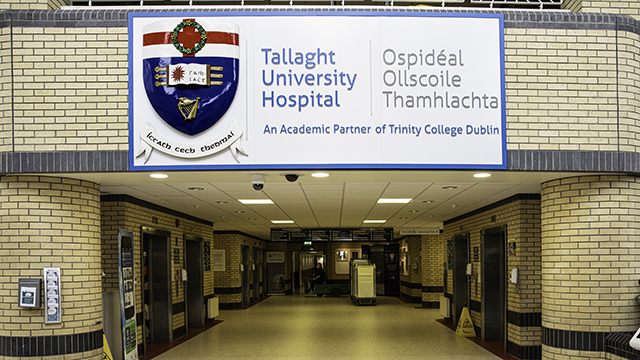A LOCAL TD has described the increase in the amount of appointment cancellations at Tallaght Hospital as “extremely concerning.”
Sinn Féin Dublin Mid-West TD Mark Ward was commenting following the release of data that revealed a spike in hospital appointment cancellations at Tallaght University Hospital in the first nine months of 2023.
According to the figures released by the HSE, there were over 6,500 cancellations in the first three quarters of 2023 compared to 5,200 in the same period in 2022, meaning 1,300 more cancellations.
Deputy Ward said that the government’s lack of a plan for overcrowding was “impacting directly” on waiting lists through cancellations.
He also said the government was “shifting the problem” from emergency departments to waiting lists, leaving patients waiting longer for access to care.
“The Government is failing to tackle hospital overcrowding which is leading to record levels of cancellations,” Deputy Ward said.
“There was over 6,500 hospital appointments cancelled at Tallaght University Hospital in the first 9 months of 2023. That is a 26% increase on the first 9 months of 2022.
“It is an extremely concerning spike.
“The Government does not have a plan for hospital overcrowding, and this is forcing hospitals to rely on cancellations.
“This is shifting the problem from overcrowded emergency departments onto lengthy waiting lists. It is not a sustainable solution.”
Deputy Ward said that Sinn Fein has a plan to reduce cancellations by tackling overcrowding.
He explained that the party would achieve this by investing in the necessary hospital bed capacity, in home care and step-down beds, in protected capacity for scheduled care, by fast-tracking elective centres, and investing in diagnostic capacity.
“Sinn Féin would invest in the necessary bed capacity so that patients can be admitted quickly and our healthcare professionals are working in safe environments,” he said.
We need at least 2,400 hospital beds across the state over the next 5 years.
“Sinn Féin would fast-track elective centres so that we can separate unscheduled, emergency care from scheduled surgeries and procedures. This will increase surgical theatre capacity, help to reduce the number of cancellations, and free up capacity in hospitals for emergency care.
“We would also invest in home support, community step-down beds, and diagnostic capacity so that patients can be discharged home or to a supported care setting when they are ready, and to ensure that patients’ experiences are not delayed by lengthy waiting lists for scans.
“We will never solve waiting lists without solving hospital overcrowding and reducing cancellations. “This Government has no plan to do that, and the longer it remains in office the worse the problems get.”
In response to Sinn Fein’s question, Trish King, HSE Acute Operations Manager, explained the reasons for cancellation of scheduled care appointments.
“Hospitals may have to cancel scheduled care appointments due to factors outside their control including the following,” she said in a written statement.
“Increased ED attendances and admissions resulting in a requirement for surge inpatient bed capacity.
“Unforeseen circumstances e.g., Weather events, infection outbreaks or industrial action.
“Sick leave which impacts on service being given at the planned time.
“Hospitals endeavour to provide the patient with as much notice as possible in relation to the cancellation of elective appointments.
“The National Inpatient, Day Case, Planned Procedure (IDPP) waiting list management protocol 2017 issued by the National Treatment Purchase Fund (NTPF) requires hospitals to reschedule elective
care appointments within six weeks of cancellation, subject to patient confirmation regarding their availability to attend. Clinical guidance must be sought when managing and rescheduling patients cancelled by the hospital.
“This is necessary to ensure that urgent and vulnerable patients are rescheduled appropriately.
“Patients cancelled by the hospital will not have their waiting list date reset.”
Last August, Deputy Ward’s party colleague and Dublin South West TD Sean Crowe, also expressed concern following a release of figures that revealed 3,510 people walked out of the Emergency Department of Tallaght University Hospital between January and May 2023 without even being seen due to the sheer length of delays.
“People go to hospital because they need help,” Deputy Crowe said at the time.
“More people are leaving Tallaght Hospital without that help than they are in whole hospital groups in the rest of the state. And it’s no wonder when the average time to be seen for over 75s was 22 hours.
“Leaving an elderly person on a chair in a waiting area for practically a full day should never be the norm. it should be something we are outraged could ever happen at all.”
